With all the special effects, makeup, and technology we have today, it’s easy to create an unsettling photo.
But somehow, modern images rarely feel as chilling as the ones from the past. There’s something about the grainy black-and-white film, the stiff poses, and the haunted expressions that makes these old photographs feel darker and more mysterious.
It almost feels like you’ve stumbled onto something you shouldn’t see. But you can’t help yourself.
So don’t—below, you’ll find a glimpse into that past, one that might make you want to keep the lights on while you scroll. Enjoy the spine tingles.
#1 British Soldiers After Their Release From Japanese Captivity In Singapore, 1945
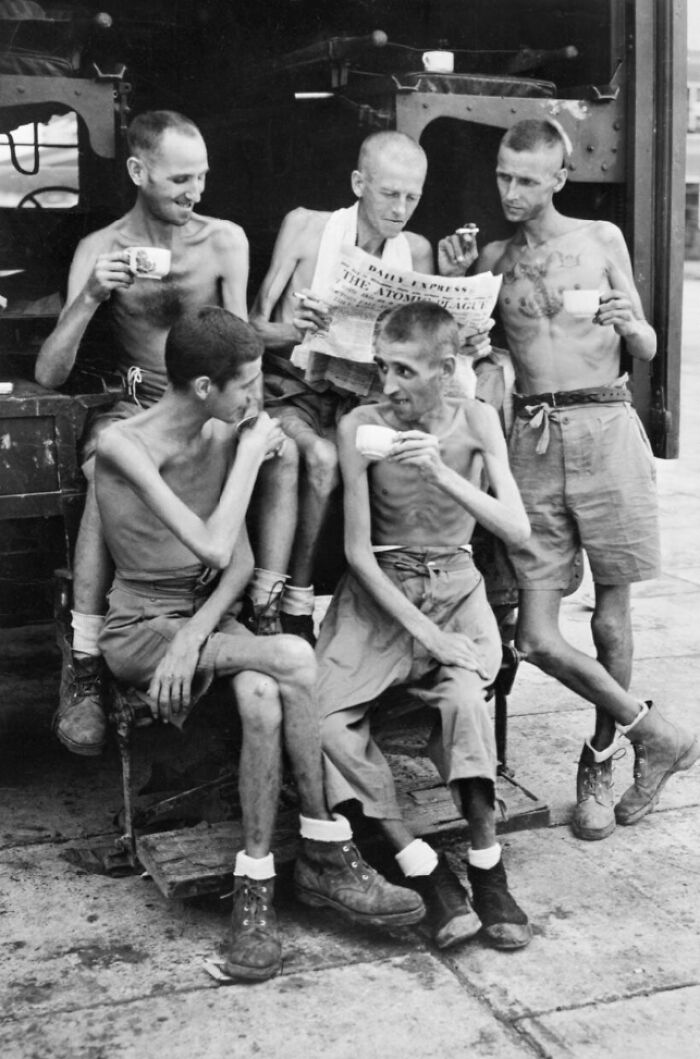
Image credits: Oliver Zina
#2 Jewish Children Walking Towards The Gas Chambers
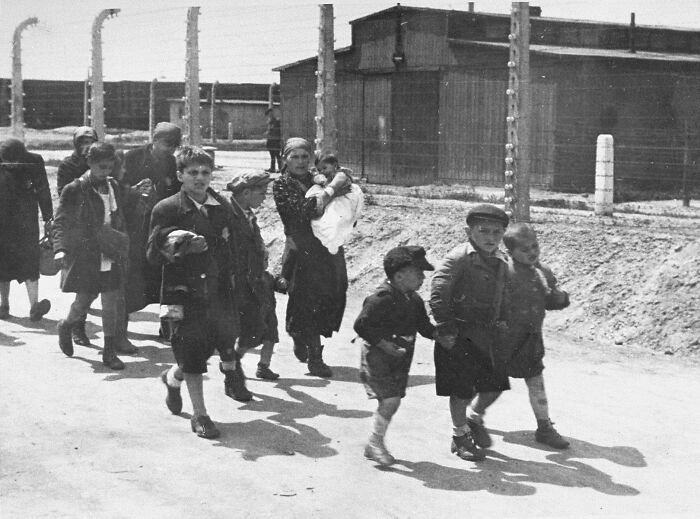
Image credits: Unknown
Just because Photoshop didn’t exist back then doesn’t mean early photographers couldn’t get creative. In fact, they found plenty of ways to manipulate photos without any tech, relying on chemistry and careful handiwork.
As a result, their efforts produced images that were beautiful, strange, or downright scary, depending on what the photographer was aiming for.
#3 Runaway S***e Peter, Exposing His Severely Whipped Back
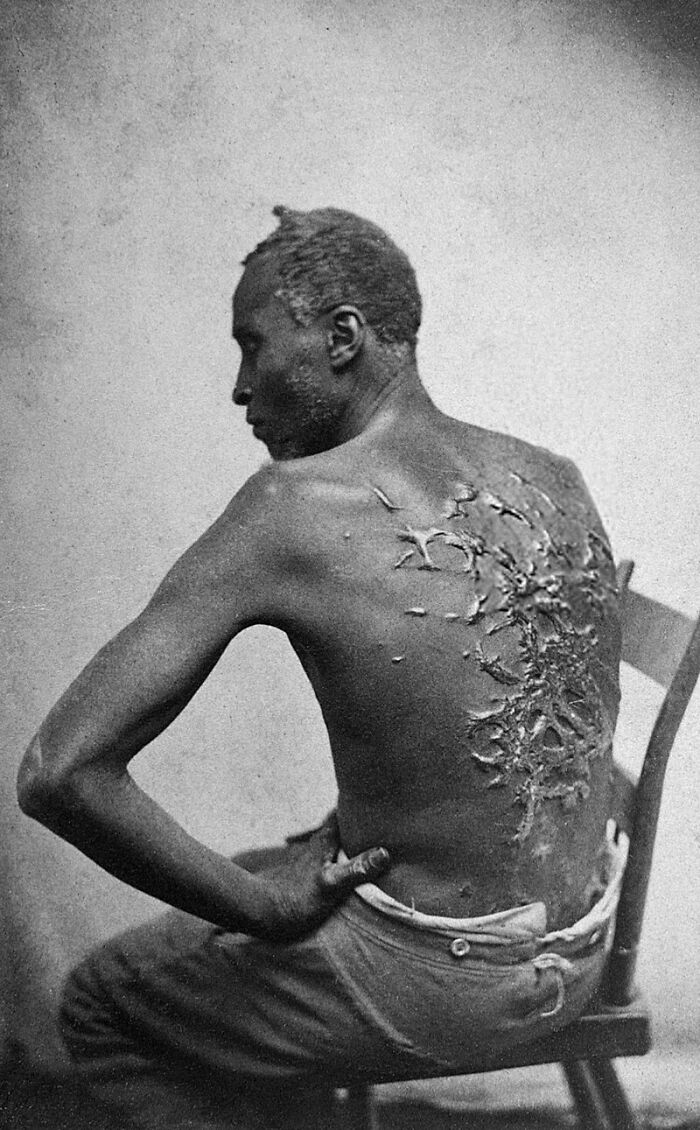
Image credits: Mathew Benjamin Brady
#4 Conrad Veidt In His Role As Gwynplaine In The 1928 Film “The Man Who Laughs”
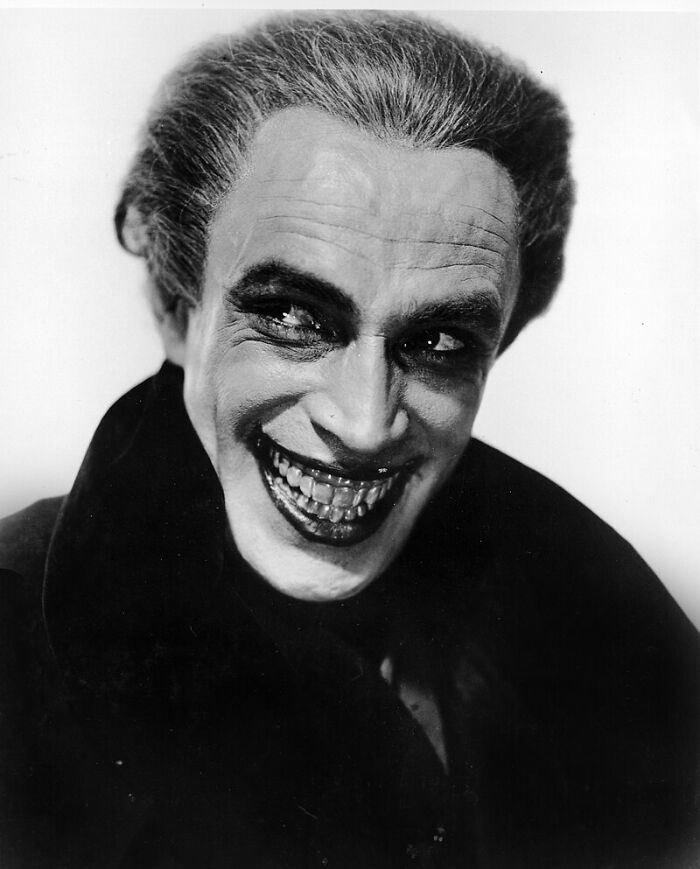
Image credits: Universal Pictures
One popular technique in the mid-19th century was hand-tinting black-and-white daguerreotype and carte de visite photographs.
Daguerreotypes, invented in 1839, used images on silver-plated copper and became widely popular during the Civil War era. If you’ve ever seen old photos with faded color, like the ones here, that’s how they were made.
#5 With Her Brother On Her Back A War Weary Korean Girl Tiredly Trudges By A Stalled M-26 Tank, Korea, 1951
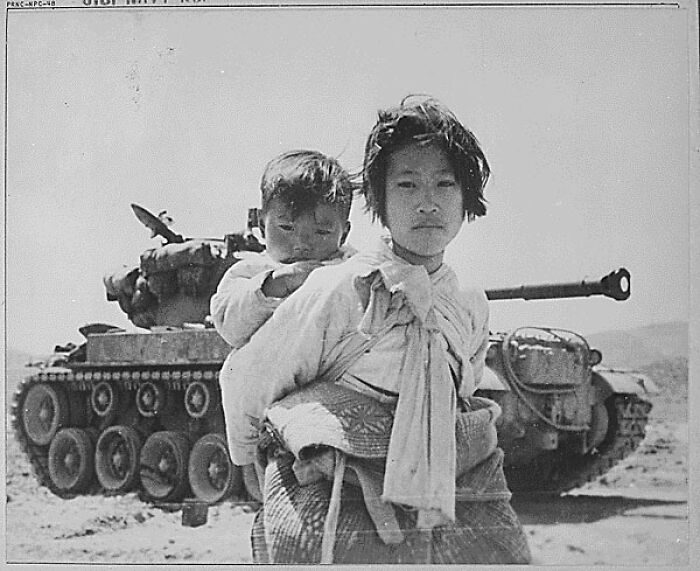
Image credits: National Archives
#6 Patient Brutally Restrained In A Mental Institution, France Circa 1900
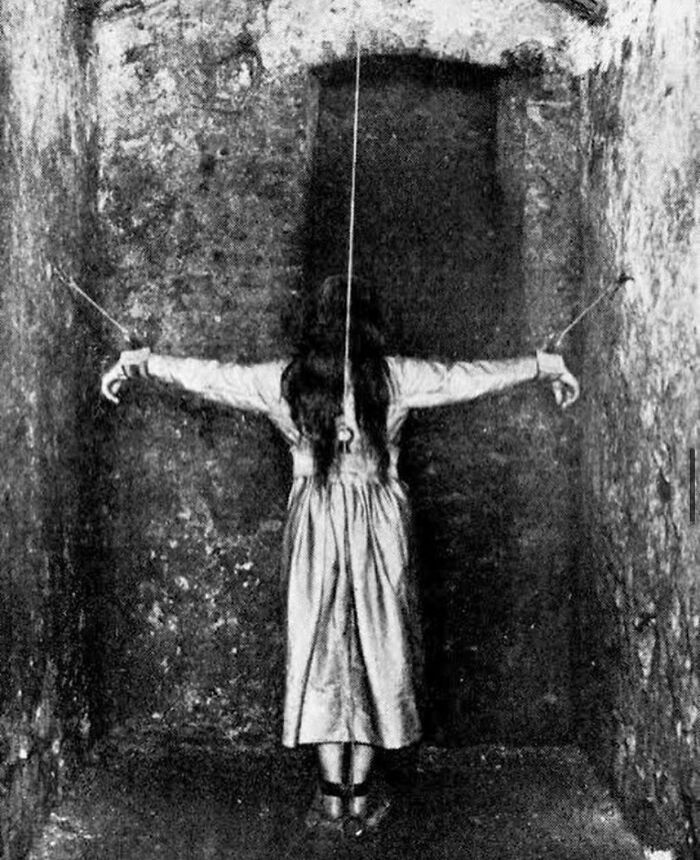
Image credits: Runoco
#7 If You Ever Wondered How The American Buffalo Could Go From 30,000,000 To 300 In 50 Years, Pictures Like This May Give Some Idea (Buffalo Skulls)
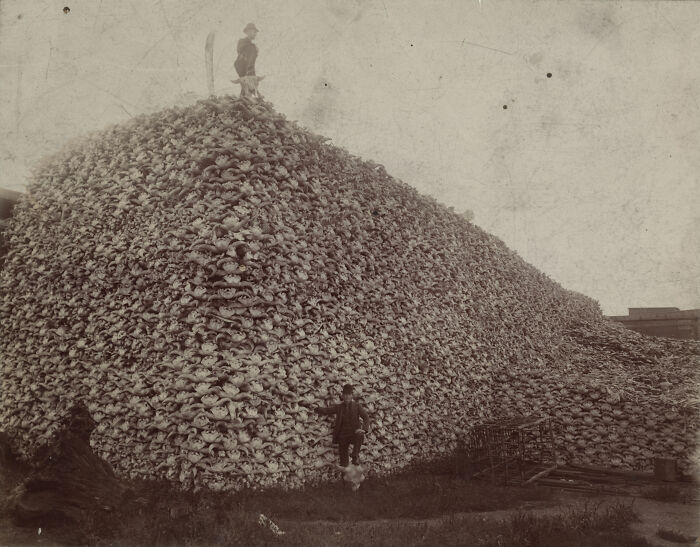
Image credits: WeeHootieMctoo
In time, albumen prints, including cartes de visite and cabinet cards, became a go-to for photographers. The paper base provided a steady surface that made hand-coloring far easier than working with daguerreotypes.
Take, for example, these hand-colored albumen prints from late 19th-century Japan showing sumo wrestlers, women in kimonos, and even a man with a full back tattoo.
#8 Blind Pioneer, Photo By Antanas Sutkus, Kaunas, Lithuania, 1962
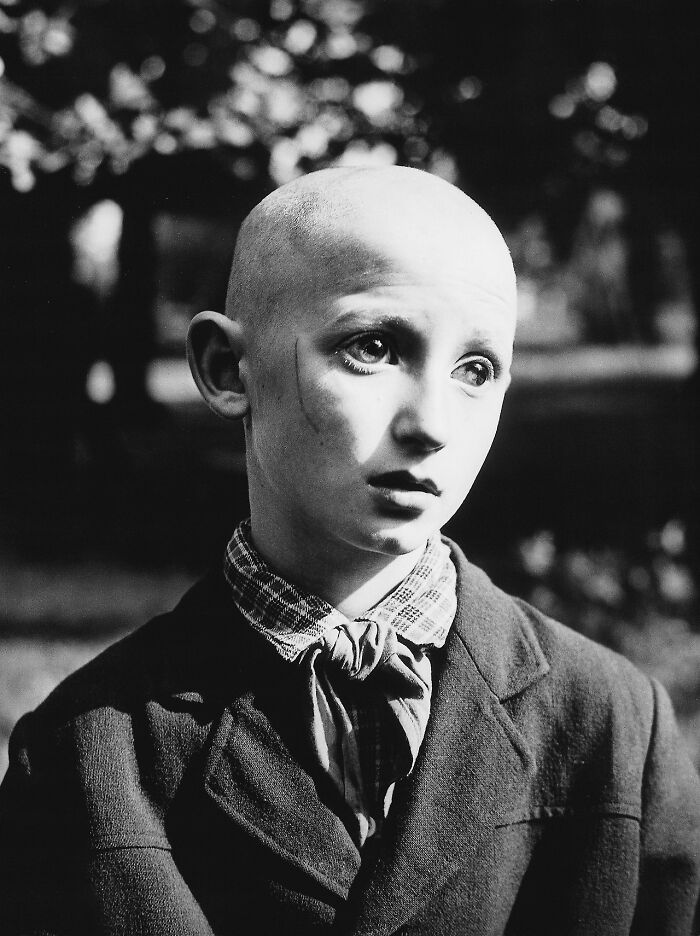
Image credits: crazydarklord
#9 A Chinese Woman Whose Feet Were Bound From Childhood, 1911
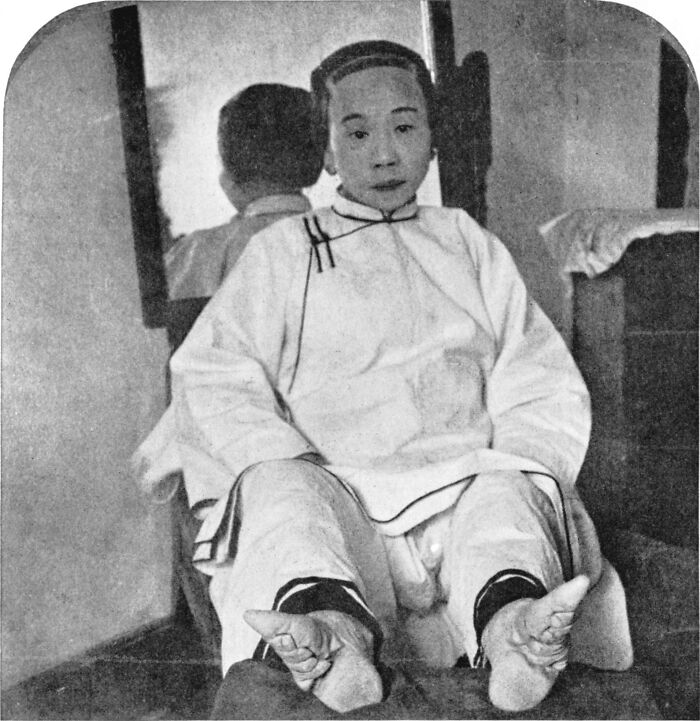
Image credits: Wikipedia
#10 Glasgow School Of Art Student Performance – Early 1900s
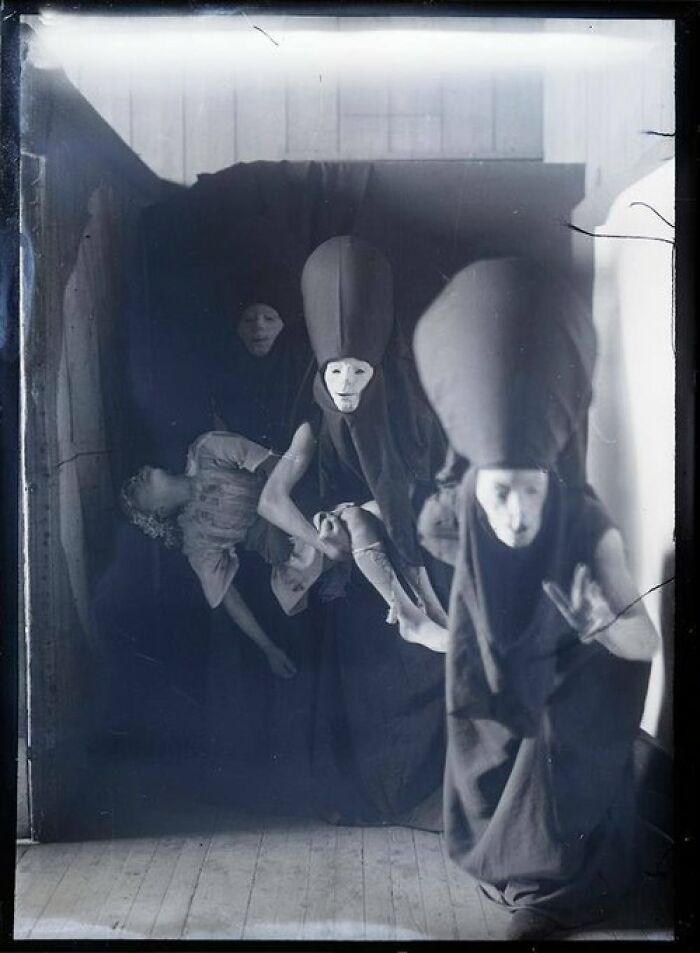
Image credits: Star_Ship_55
Photographers also developed techniques to make prints brighter and their subjects look more appealing.
A British photography journal from 1875, for instance, advised using a sharp, fine-pointed pencil to add highlights, and suggested brightening areas like cheeks that printed too dark by “cross-hatching with a rather blunted pencil.”
#11 The Marriage Of 22-Year-Old Charlie Johns And 9-Year-Old Eunice Winstead Was A Child Marriage That Took Place In The State Of Tennessee, United States, In January 1937
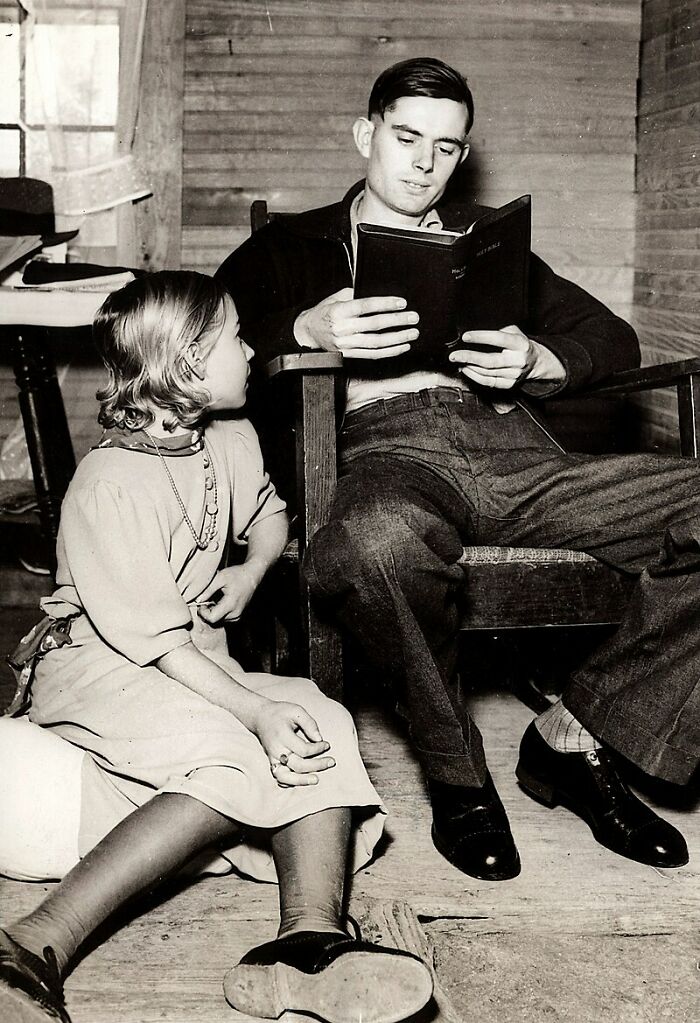
Image credits: Unknown
#12 Horrifying (And Nearly Fatal) Facial Injuries To A German Soldier In World War I (1914-1918)
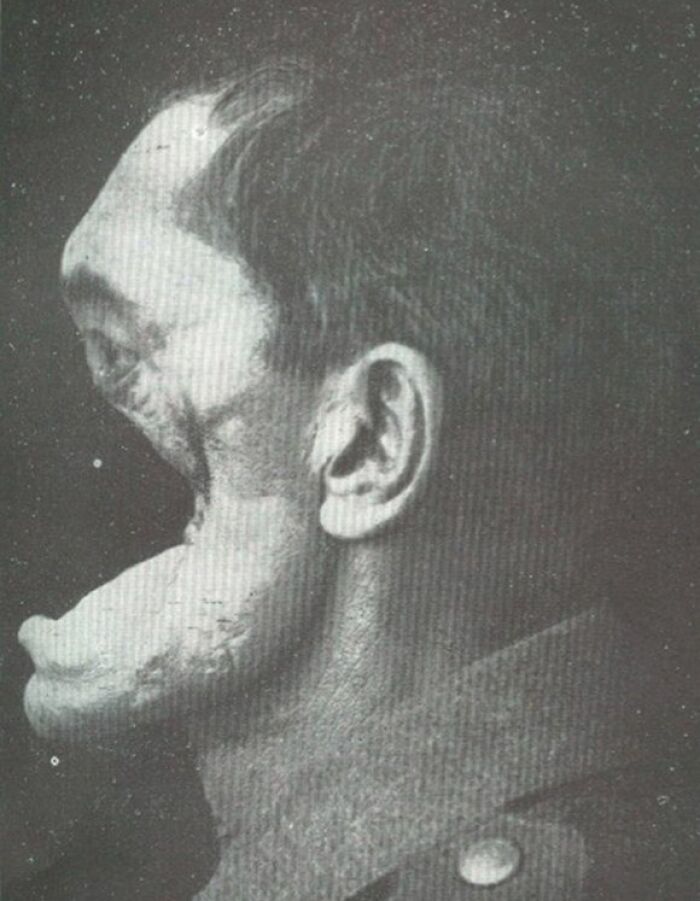
Image credits: reddit.com
#13 Nurses Carry Babies During A Gas Drill In A London Hospital In 1940
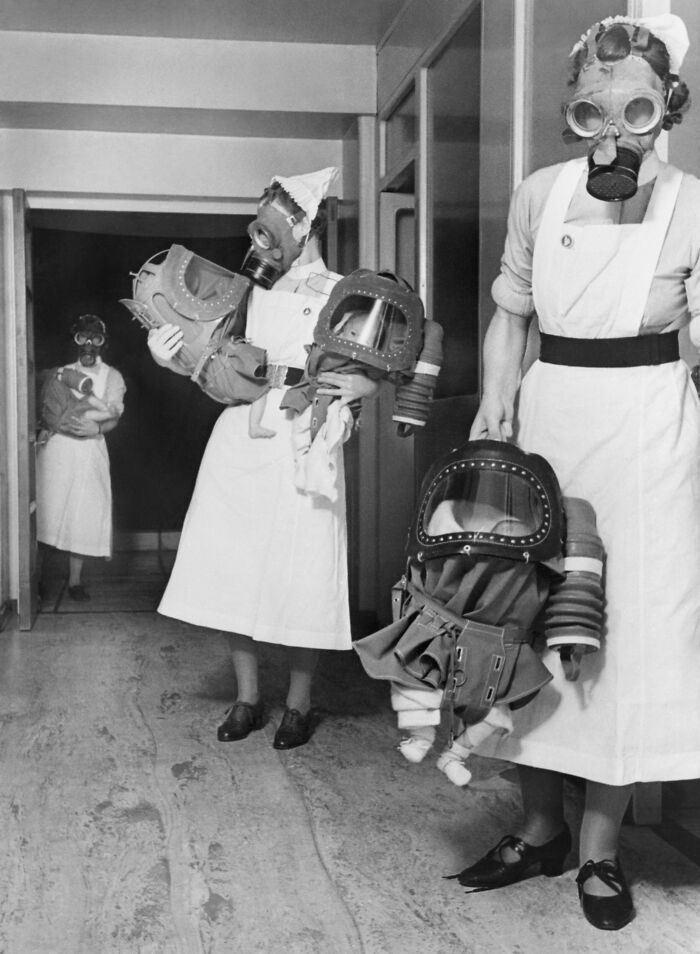
Image credits: Wikipedia
Victorians, in general, were quite fond of using the “Photoshop” of their era to look better on camera.
Beyond pencil scratchings that brightened faces, photographers used various tricks to slim waists, adjust necklines, reshape arms, and tweak features like mouths, hair, and eyes.
No Facetune required to look snatched.
#14 Blanche Monnier Was Secretly Kept Locked In A Small Room By Her Aristocratic Mother And Brother For 25 Years. Monnier Had Not Seen Any Sunlight For Her Entire Captivity
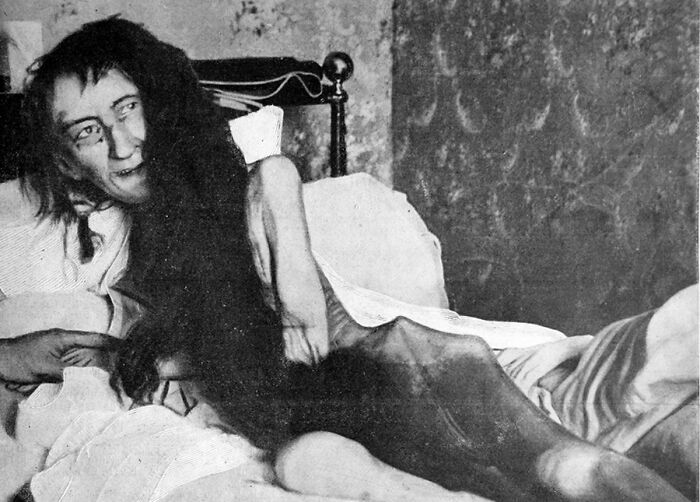
Image credits: Wikipedia
#15 Shadow Of A Noose Against A Brick Tower During War Crimes Trials. Nuremberg, Germany
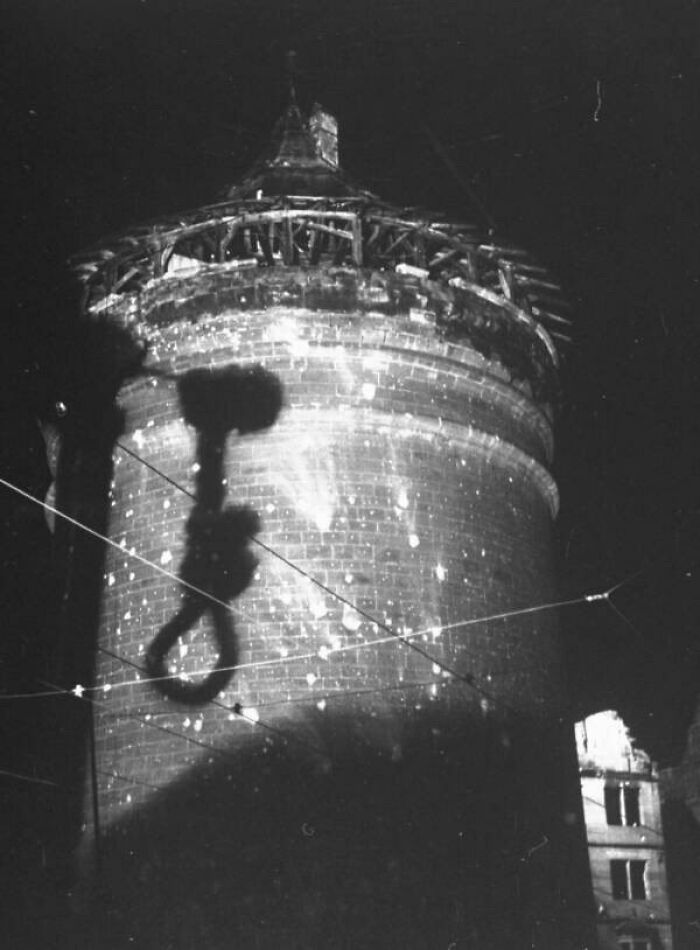
Image credits: froggysaysno
#16 Ella Harper, Known As The “Camel Girl”, Was Born With A Very Rare Orthopedic Condition That Caused Her Knees To Bend Backwards, Called Congenital Genu Recurvatum
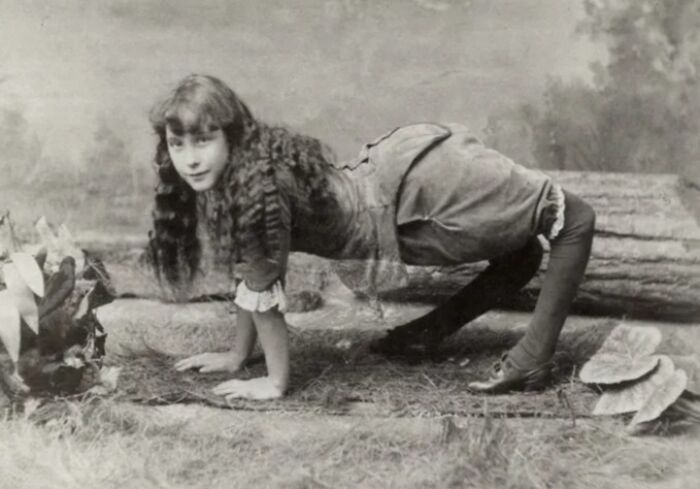
Image credits: Unknown author
They didn’t stop at beauty edits, either. Different photographers experimented with all sorts of effects to make images more interesting or downright eerie.
Techniques included distorted images, pinhole photography, mirror portraits, “magic vignettes,” artificial mirages, ghostly double exposures, silhouettes, and even staged “decapitated” headshots.
#17 Misses Fannie Mills Aka “The Ohio Big Foot Girl”
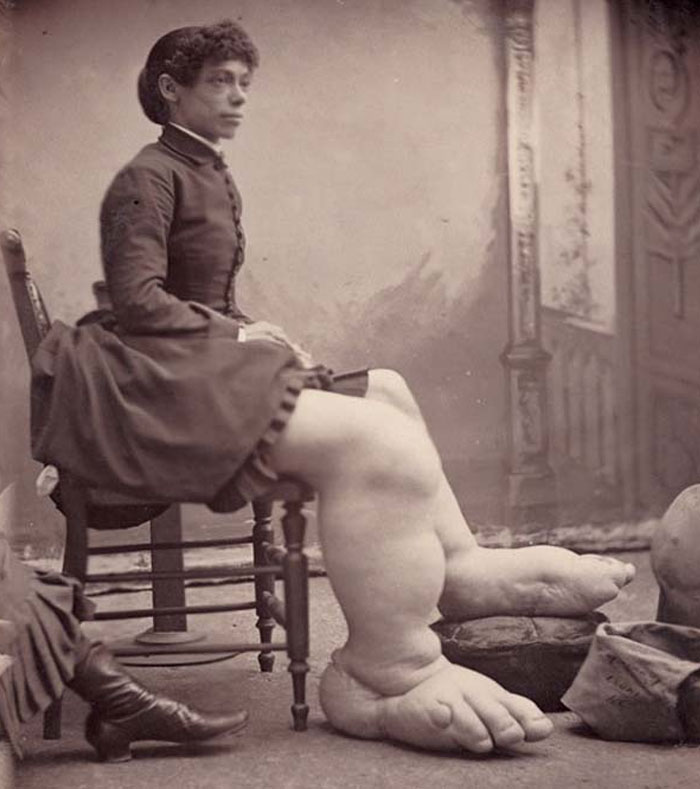
Image credits: Charles Eisenmann
#18 Coal Miners Returning From The Depths After A Days Work, Belgium, Circa 1900
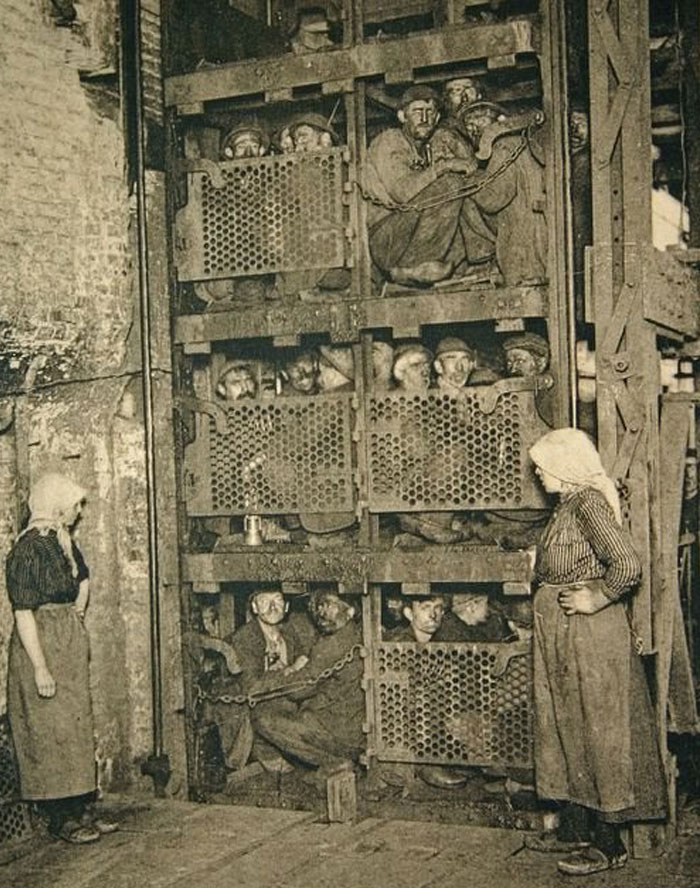
Image credits: imgur.com
#19 Twins In Homemade Costumes In 1930
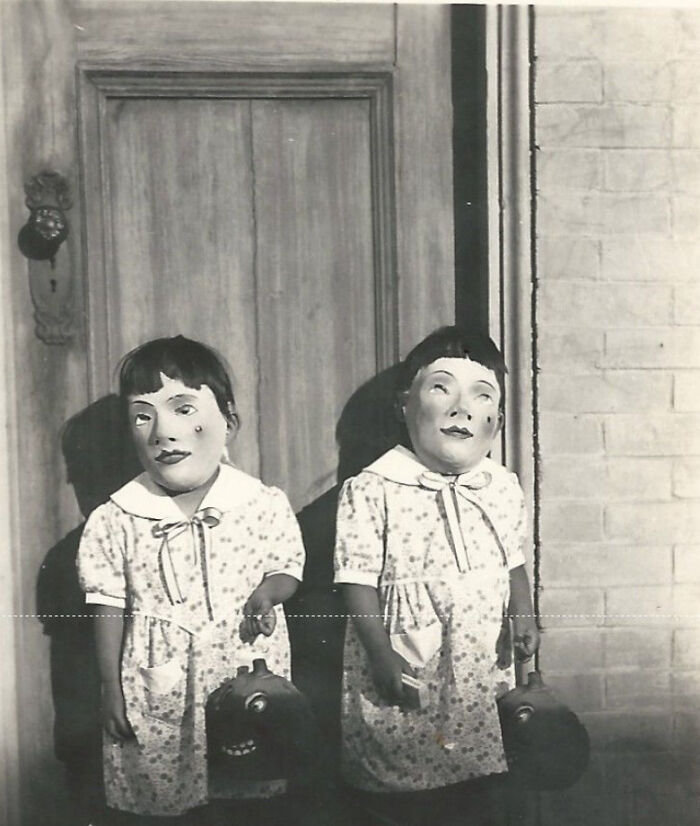
Image credits: reddit.com
Of course, the next question is: how did they pull it off?
Take spirit photography.
In the early 20th century, a British man named William Hope gained fame in Spiritualist circles for allegedly capturing images of ghosts in his photos.
He formed a group called the Crewe Circle, taking advantage of grieving families who had lost loved ones in World War I and wanted proof their relatives were still near.
By 1922, Hope was making good money in London as a spirit photographer and medium, with supporters like Sir Arthur Conan Doyle, the creator of Sherlock Holmes.
#20 A Trapper Boy, One Mile Inside A Mine In West Virginia, 1908
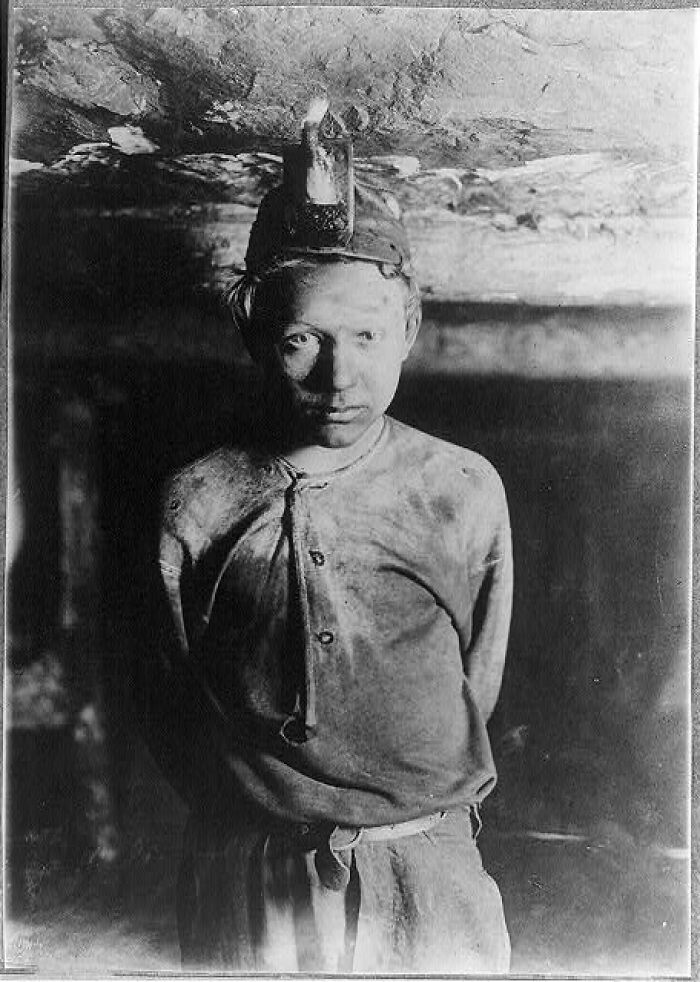
Image credits: Library of Congress
#21 Josephine Myrtle Corbin, The Four Legged Woman (1890’s)
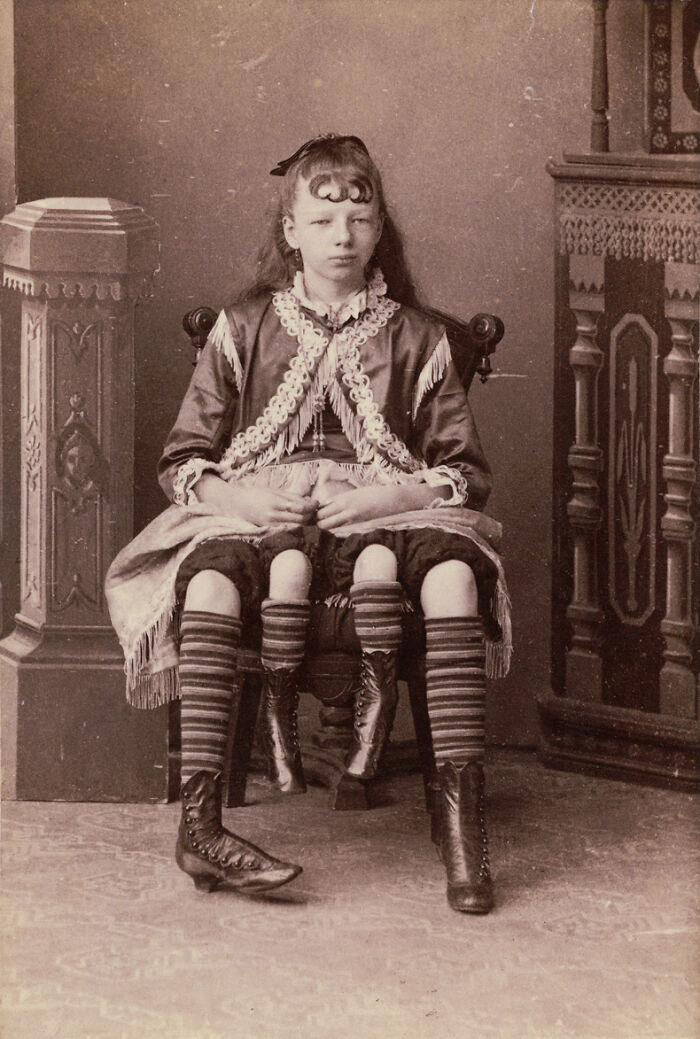
Image credits: Wikipedia
#22 A British Merchant Being Carried By A Sikkimese Lady On Her Back. West Bengal Circa 1903
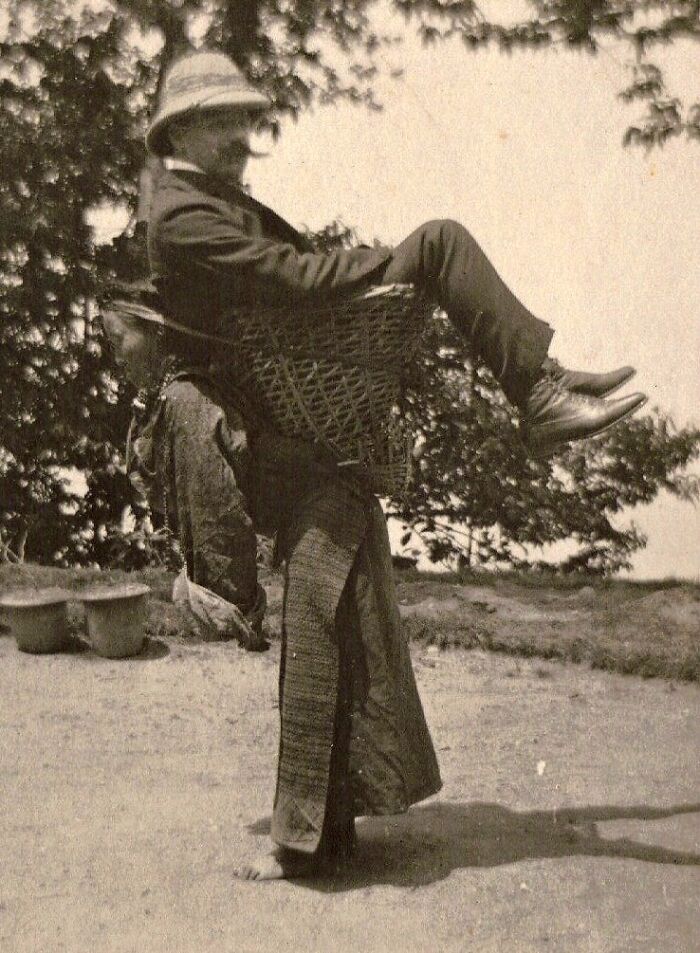
Image credits: Wikimedia
But how did he actually create these ghostly images?
According to Nathaniel Stein, a photography fellow at the Philadelphia Museum of Art, the main trick was double exposure on photosensitized glass plates.
Photographers would first capture the “spirit” (often a person draped in fabric) and then use the same plate to photograph the sitter, resulting in a ghostly overlay that looked convincingly supernatural.
Alternatively, multiple negatives could be printed onto a single piece of photographic paper.
Eventually, skeptics exposed Hope’s photos as fakes, but for a time, people truly believed they were seeing the afterlife.
#23 Portrait Of German Architect Carl Weber And His Wife, Emily Of Stratford In 1850, Just Hours After She Died
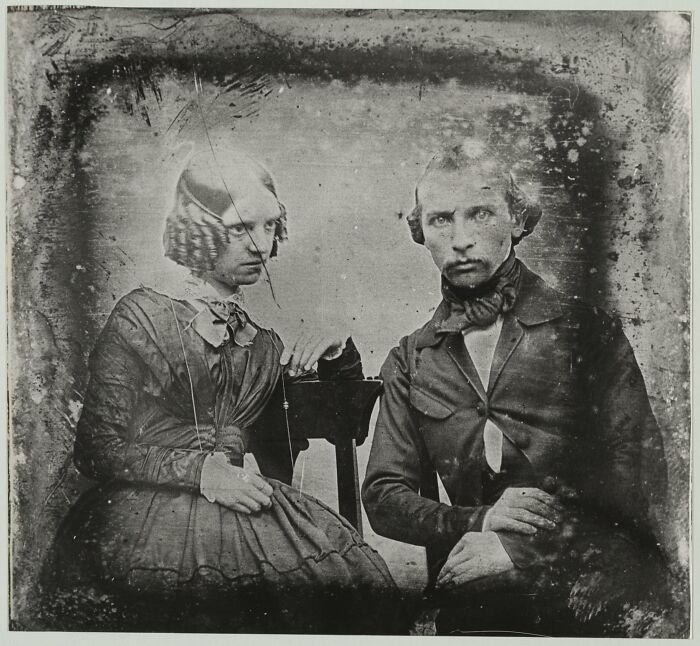
Image credits: Wikimedia
#24 Melted And Damaged Mannequins After A Fire At Madam Tussaud’s Wax Museum In London, 1925
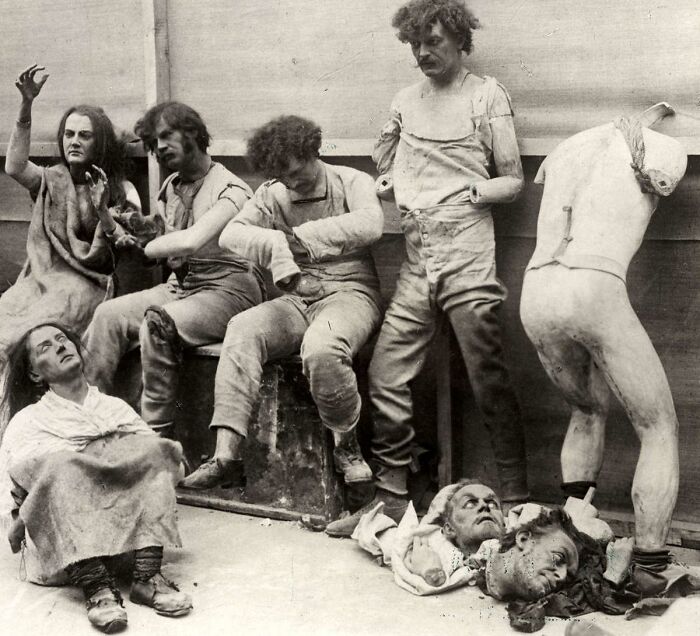
Image credits: Wassenbeelden Museum
#25 Clown On Stilts, The Way They Used To Bring It
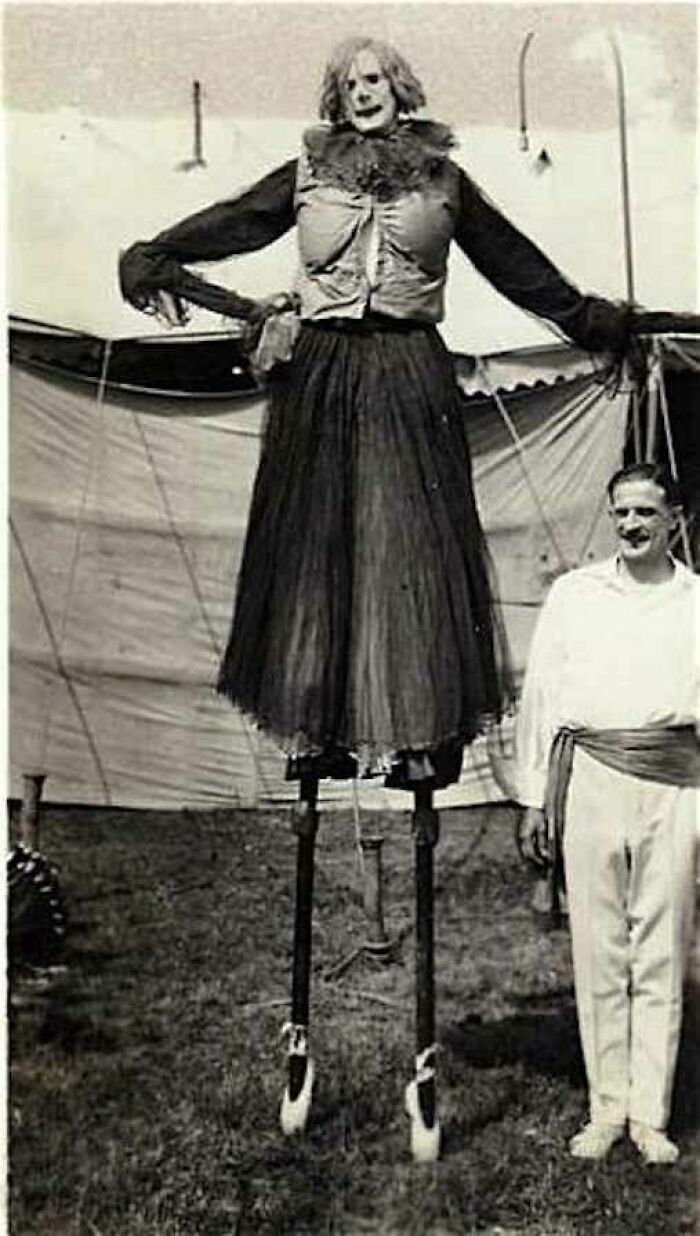
Image credits: WendyRunningMouth
Then there were the headless portraits, first achieved around 1856 by Oscar Rejlander, a Swedish-born Victorian photographer known for pioneering photomontage and combination printing.
To create these eerie images, multiple negatives were layered and combined to make it appear as though the subject had been cleanly separated from their head.
#26 A Young Boy Gets His Teeth Examined At London’s Friern Hospital 1890/1910
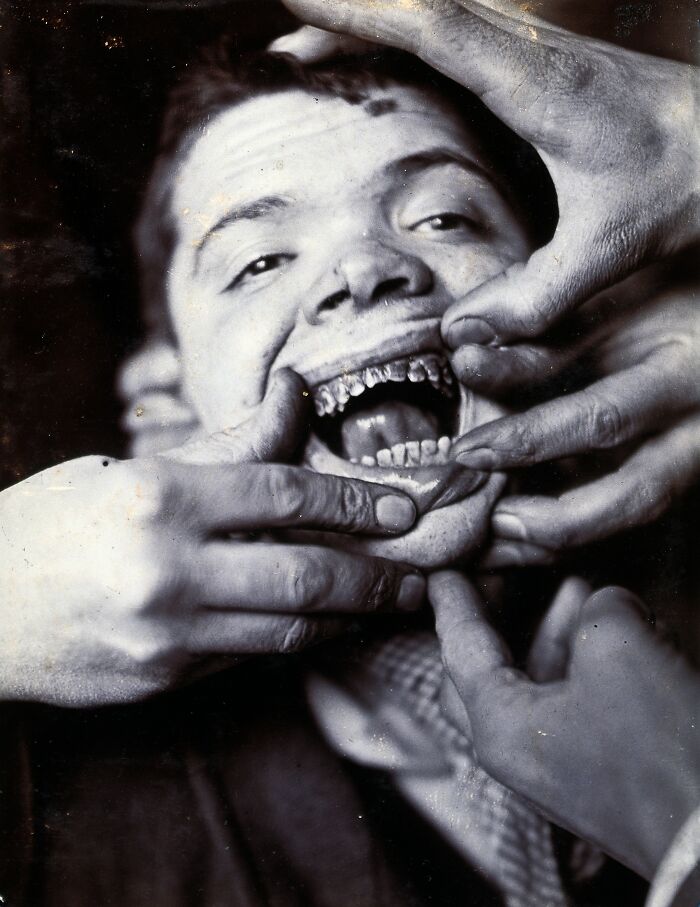
Image credits: Wikimedia
#27 A Creepy Costume
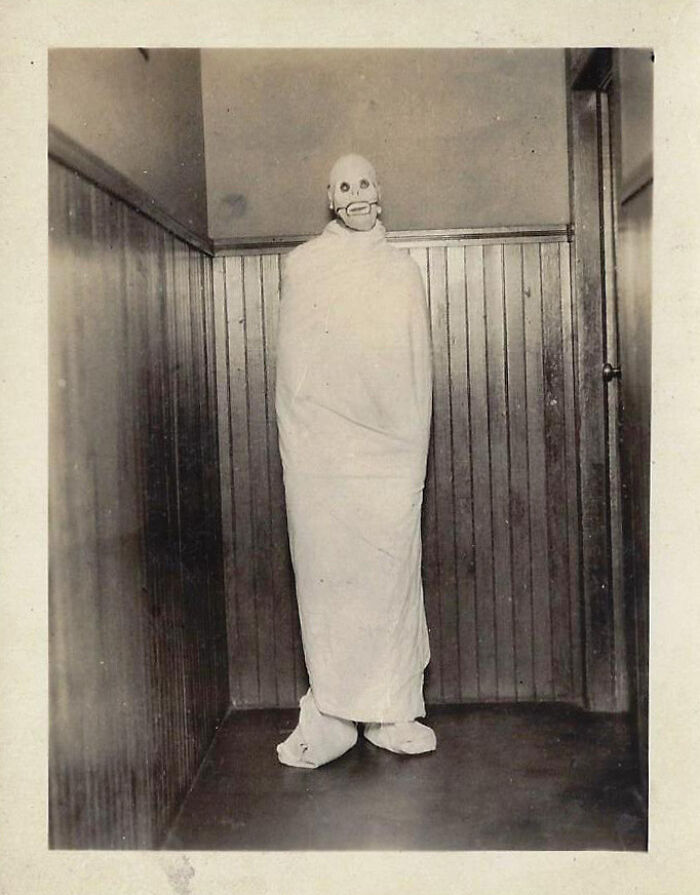
Image credits: reddit.com
#28 A Girl Brushes Her Hair In 1920s
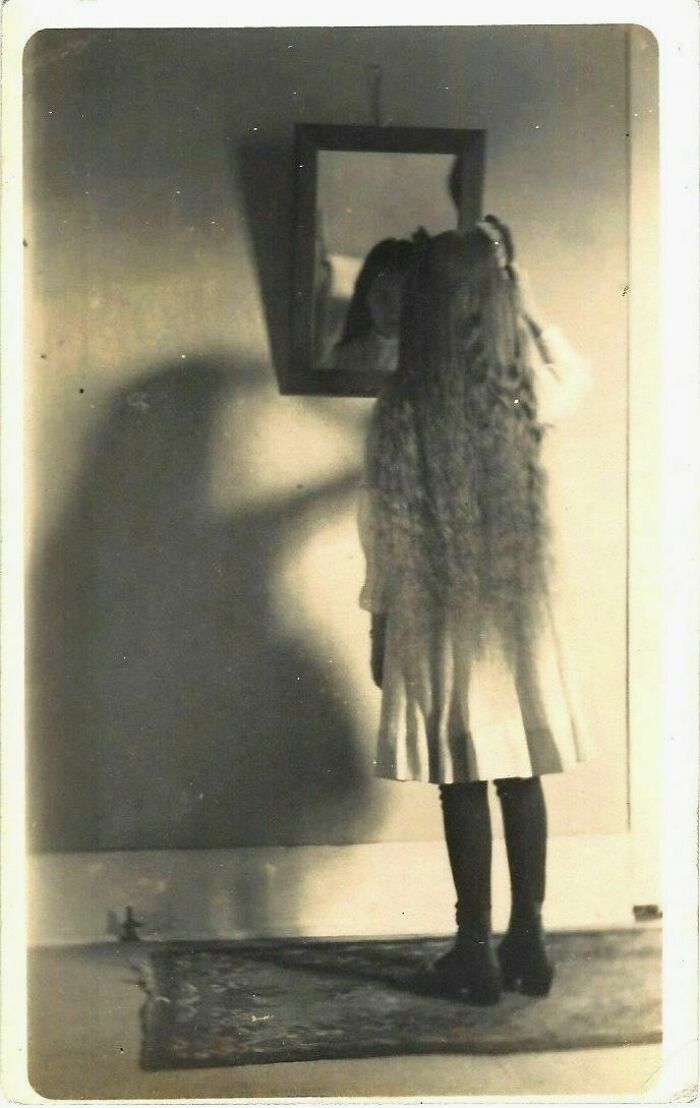
Image credits: reddit.com
So the next time you come across an old photo with a ghostly figure, a floating head, or an unsettling aura, you’ll know what was really happening behind the lens. The mystery might be solved, but the wonder and the chill remain. And maybe, that’s what makes them so unforgettable.
#29 Photographs Of An Unwrapped Mummy Illustrating The Processes Of Mummification, 1941
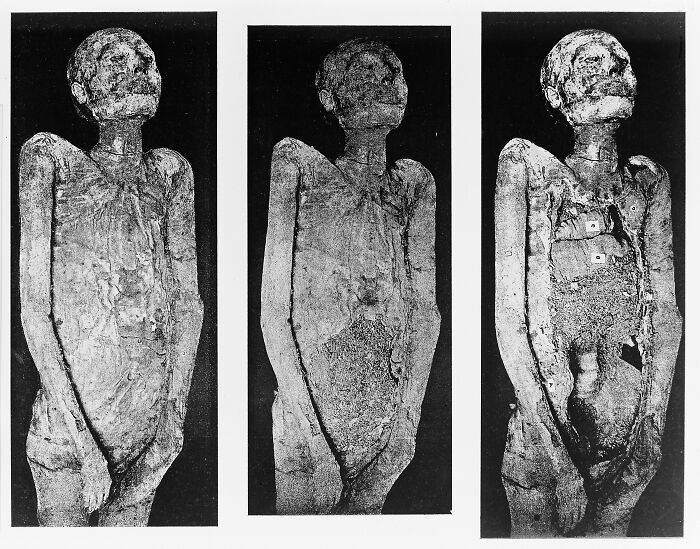
Image credits: Wellcome Collection
#30 “Hells Cafe” In Paris 1920s
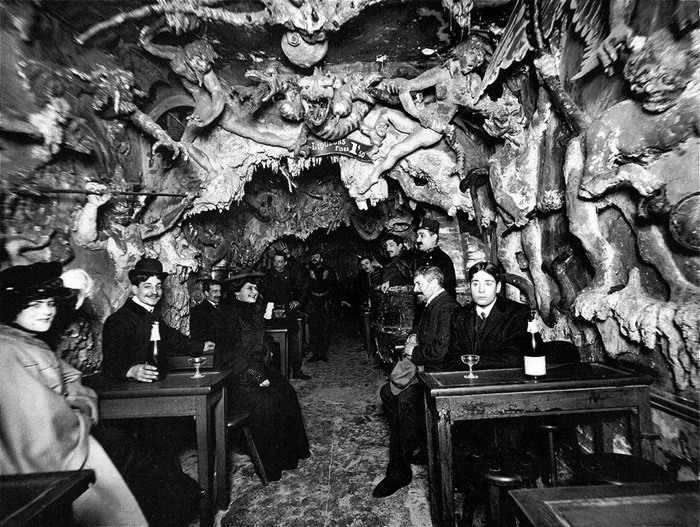
Image credits: Harry C. Ellis
#31 Couple At A Fair In Mexico 1940
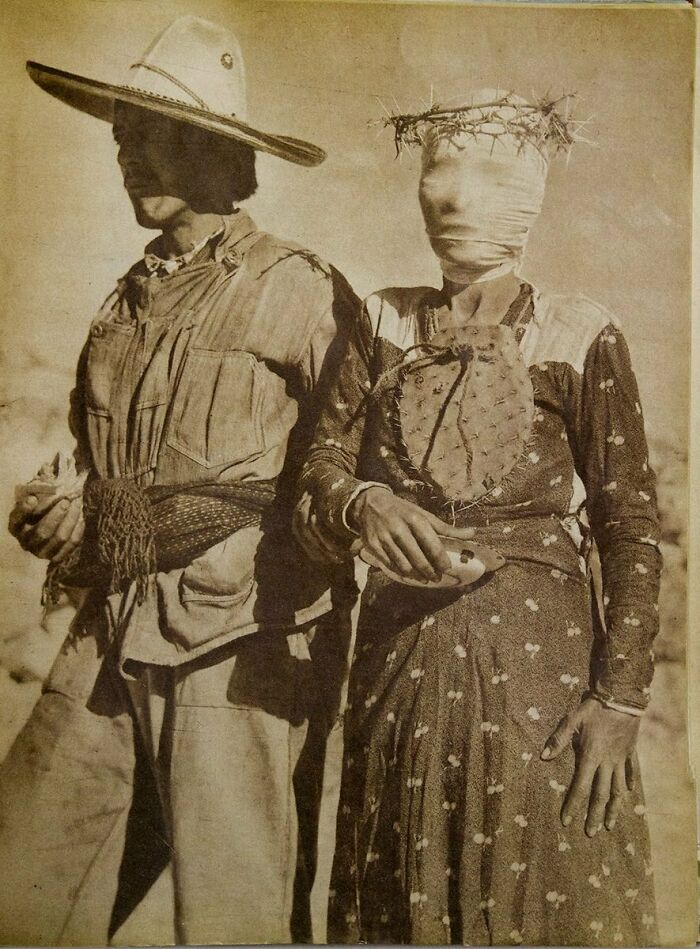
Image credits: onepersononeidea
#32 Les Diableries, A Series Of Stereoscopic Photographs Published In Paris During The 1860s
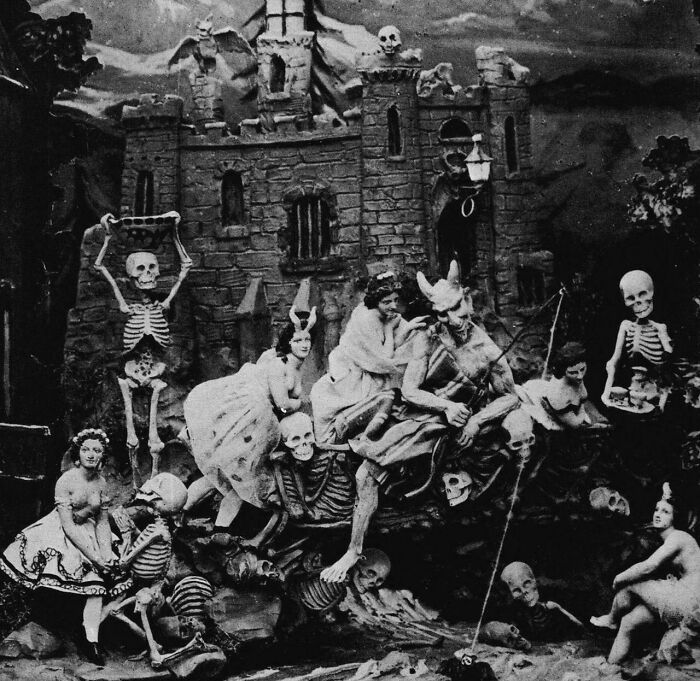
Image credits: froggysaysno
#33 Two Wax Department Store Mannequins Melt During A Heat Wave In London, 1929, Allegedly. They Also Live In Your Closet And Spy On You When You’re Asleep
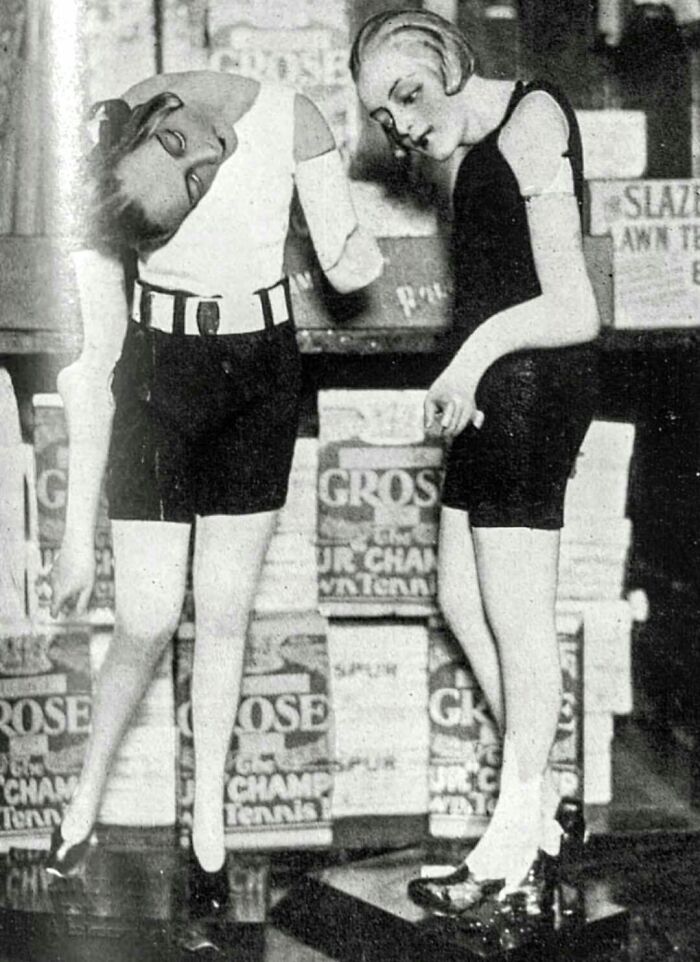
Image credits: fakehistoryhunt
#34 Wrapped Medical Cadavers At University Of Pennsylvania Circa 1915
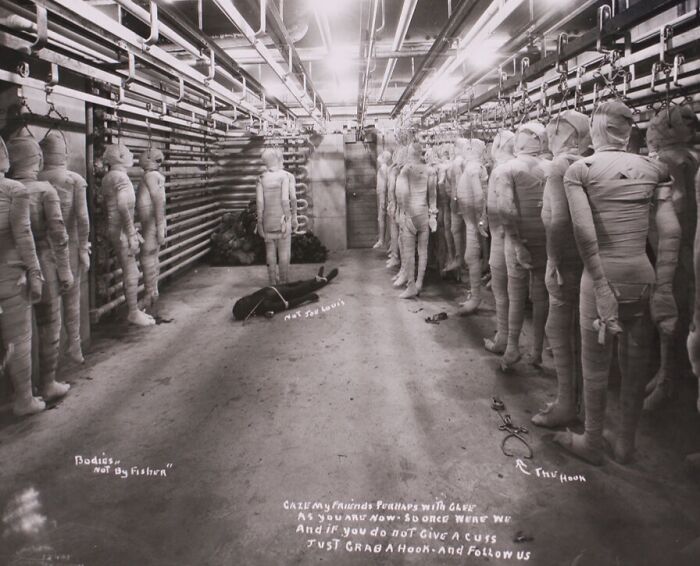
Image credits: William N. Jennings
#35 Full Face Swimming Mask From 1928
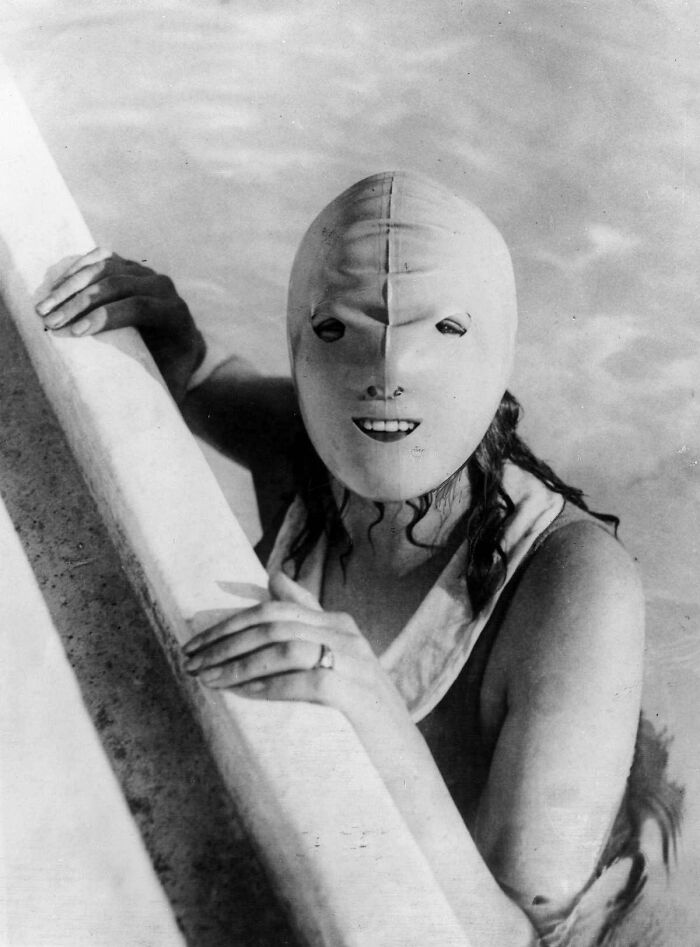
Image credits: pmmckee
#36 Operation Doorstep Was A Civil Defense Test. In Operation Doorstep, Blast And Thermal Effects Were Evaluated On Mannequins
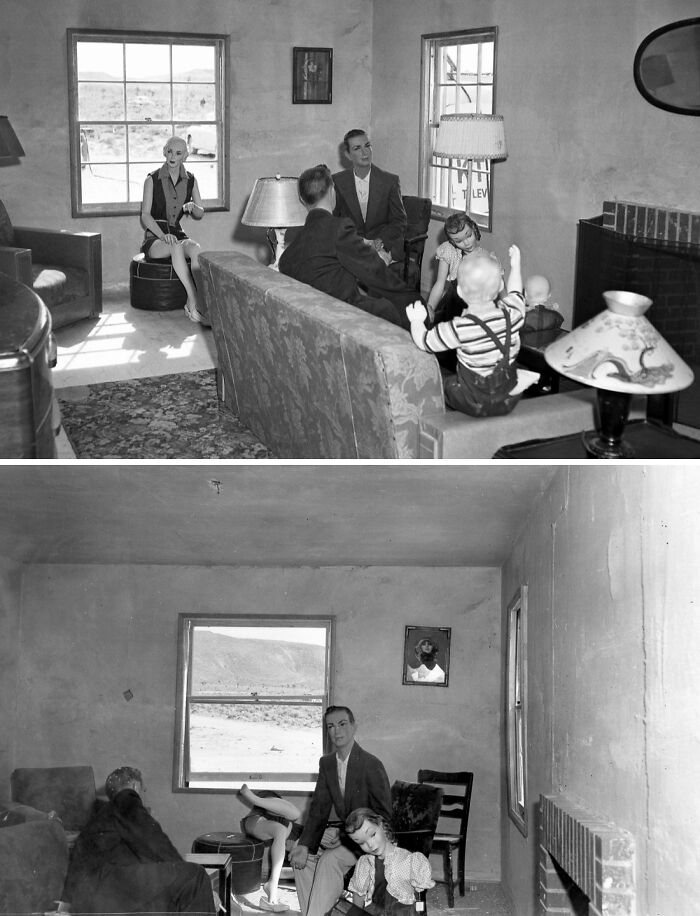
Image credits: National Nuclear Security Administration
#37 Old Picture Hanging In The Basement Hallway Of A Hospital
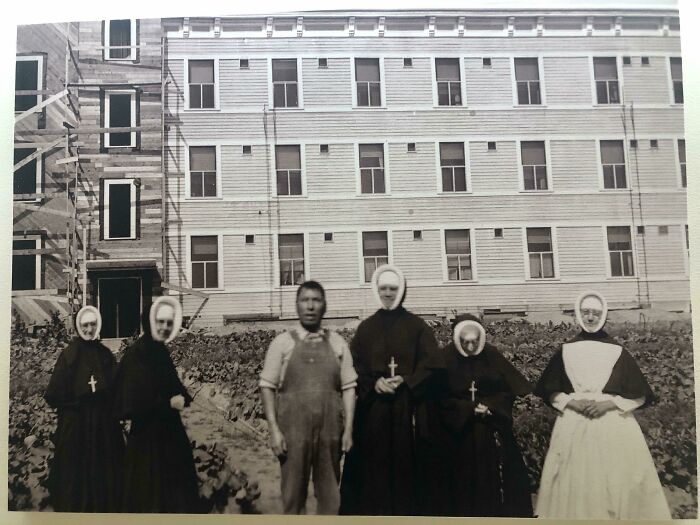
Image credits: Olywa1280
#38 Old Clown Picture I Found Among Old Family Photos
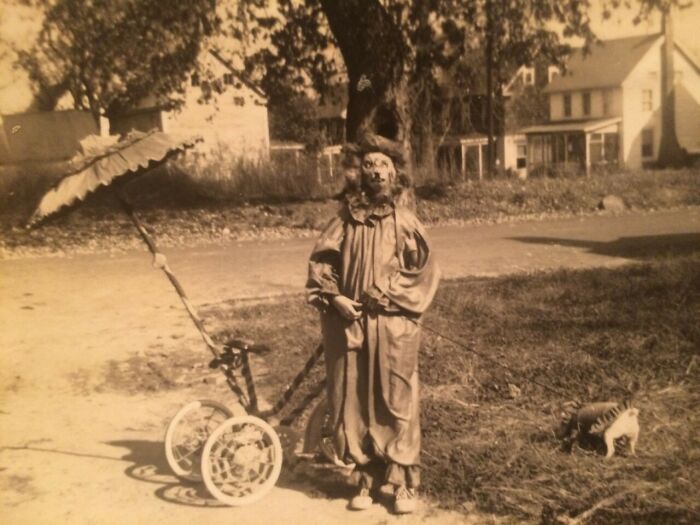
Image credits: TheMoose65
#39 Everyone Keeps Smiling And Most Ignore What Happens After Miss New Zealand Passed Out During The Photo Shoot Before The Miss Universe And Miss USA Pageants In Long Beach, Ca, Us In 1954
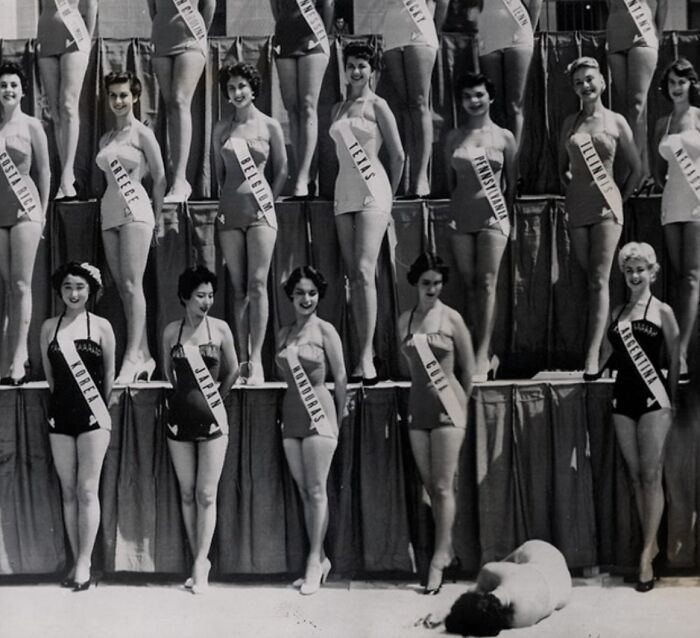
Image credits: reddit.com
#40 Disney Technicians Repairing An Animatronic Figure
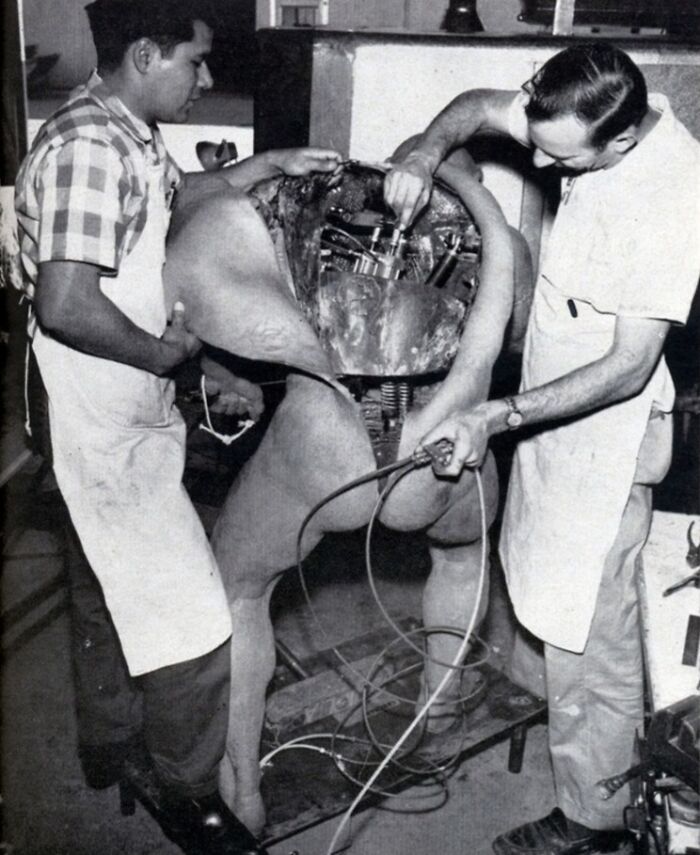
Image credits: imgur.com
#41 Treatment For Headaches In 1895
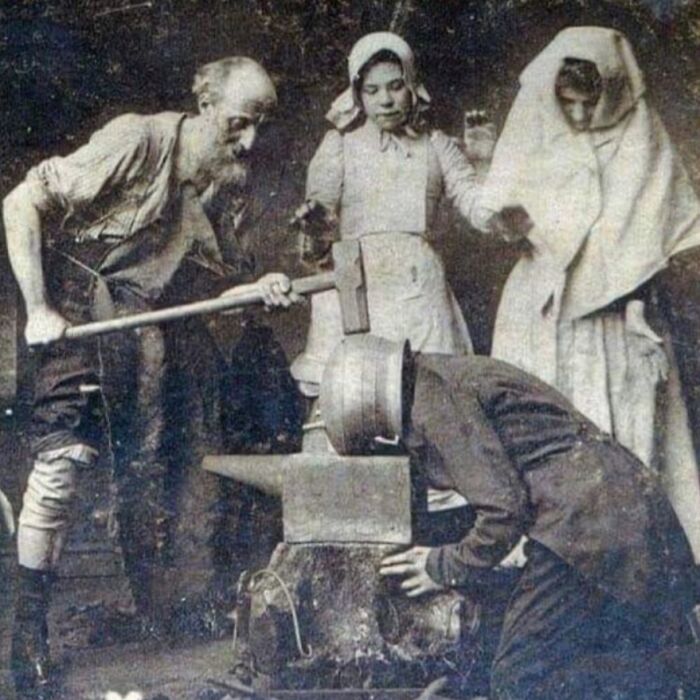
Image credits: SenseOfficial
#42 Gas Mask Parade, Tokyo, 1930s
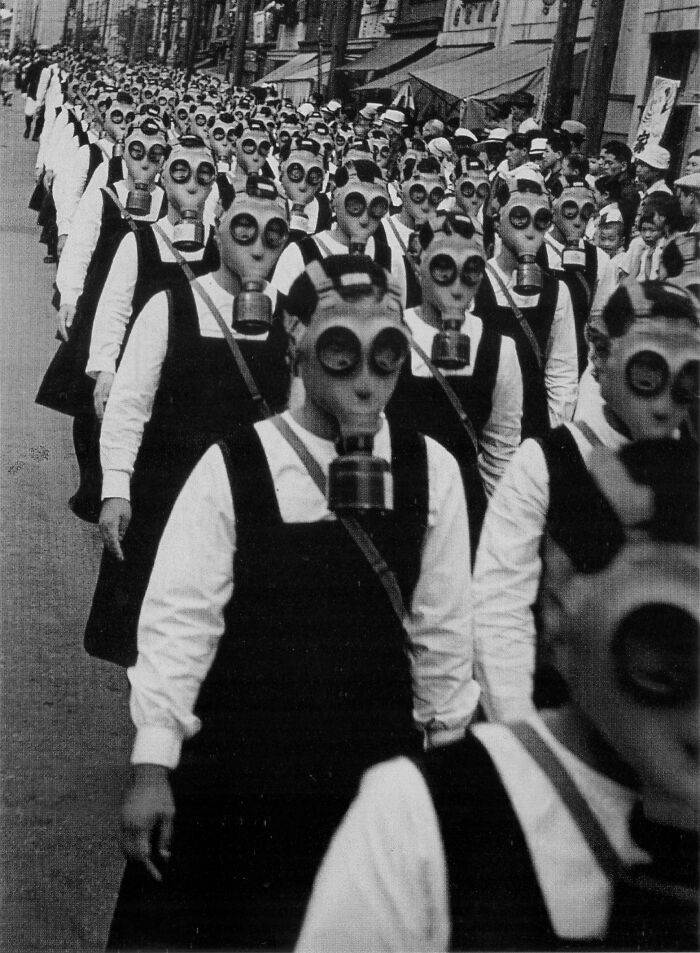
Image credits: Horino Masao
#43 A Us Navy L-8 Blimp That Continued To Fly After Its Crew Allegedly Disappeared, 1942
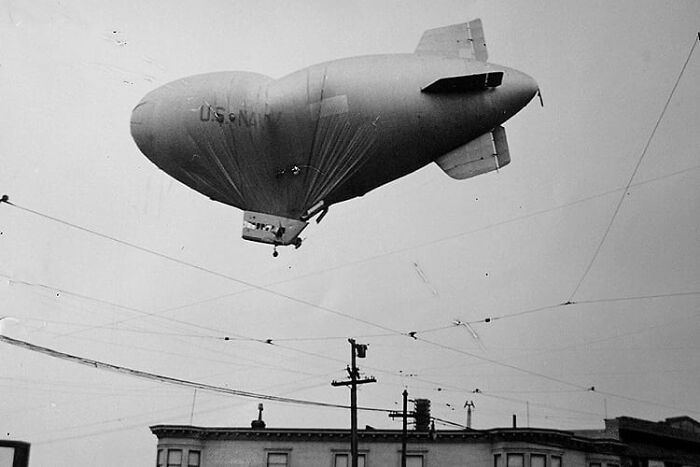
Image credits: U.S. National Archives
#44 Ruth Snyder’s Mid-E*******n Photo Taken By Tom Howard And Published The Next Day In The New York Daily News
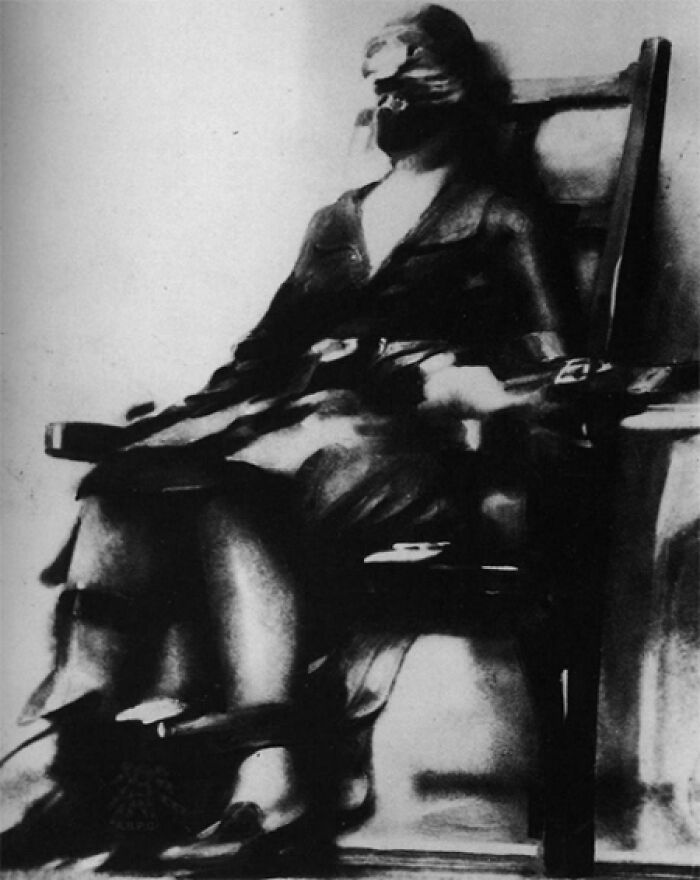
Image credits: Tom Howard
#45 Newly Formed Doll Heads Drying At A Doll Factory 1947
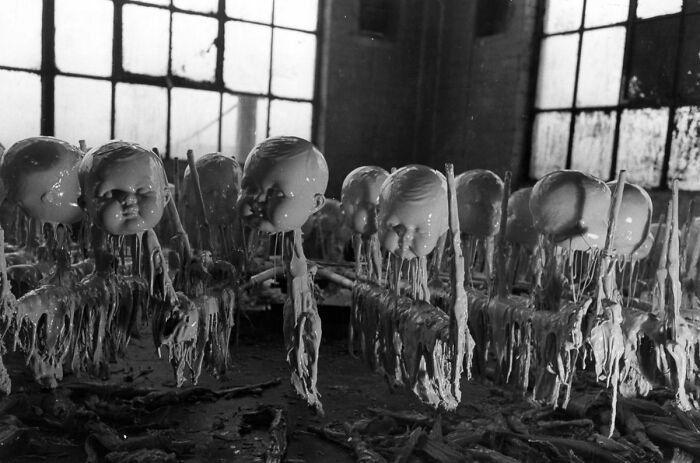
Image credits: jaykirsch
#46 A Young Girl Stands Near Live Alligators On An Alligator Farm In Florida, Us In 1948

Image credits: floridamemory.com
#47 The Michelin Men In The 1920s
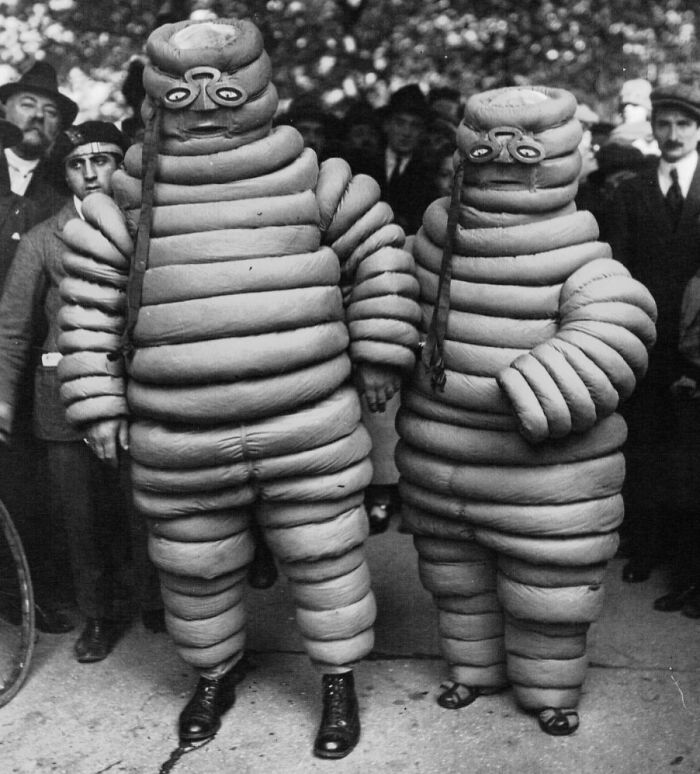
Image credits: pourmecoffee
#48 A Whale’s Remains In Alaska, 1910
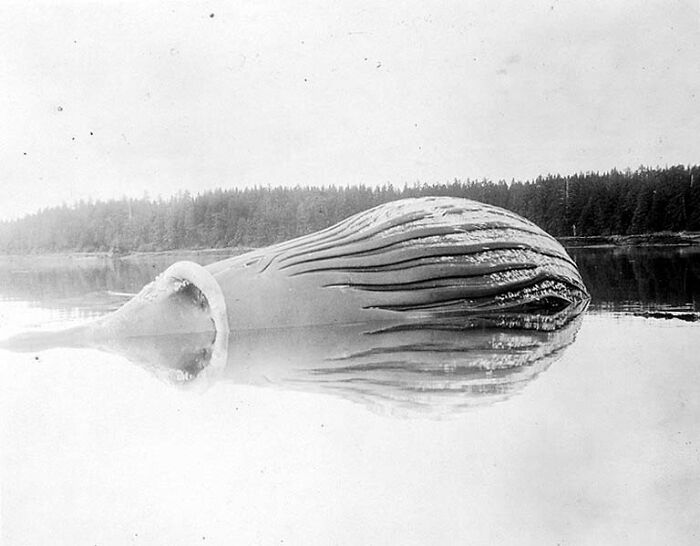
Image credits: Wikimedia
#49 Disturbing Photo From Grandmother’s Photo Album. Early 1900s. Context Unknown
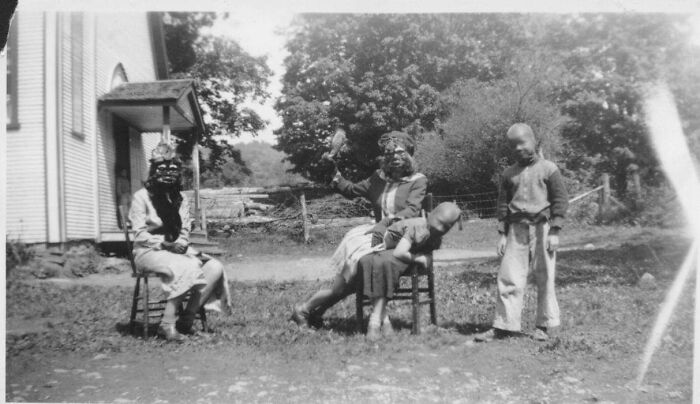
Image credits: suntro
#50 Art And Camera Magazine, 1952
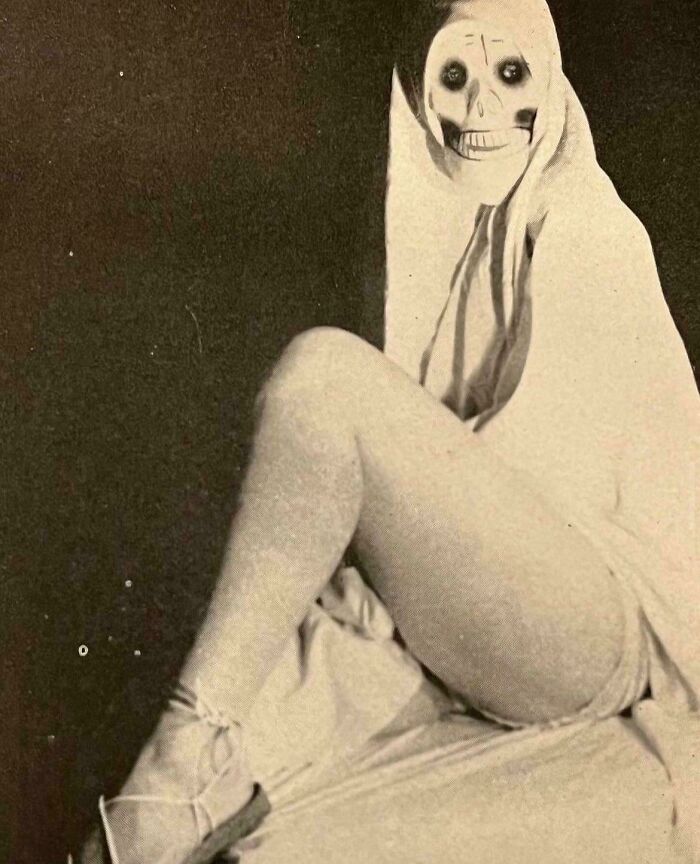
Image credits: CelebManips
from Bored Panda https://ift.tt/JMEuK45
via IFTTT source site : boredpanda